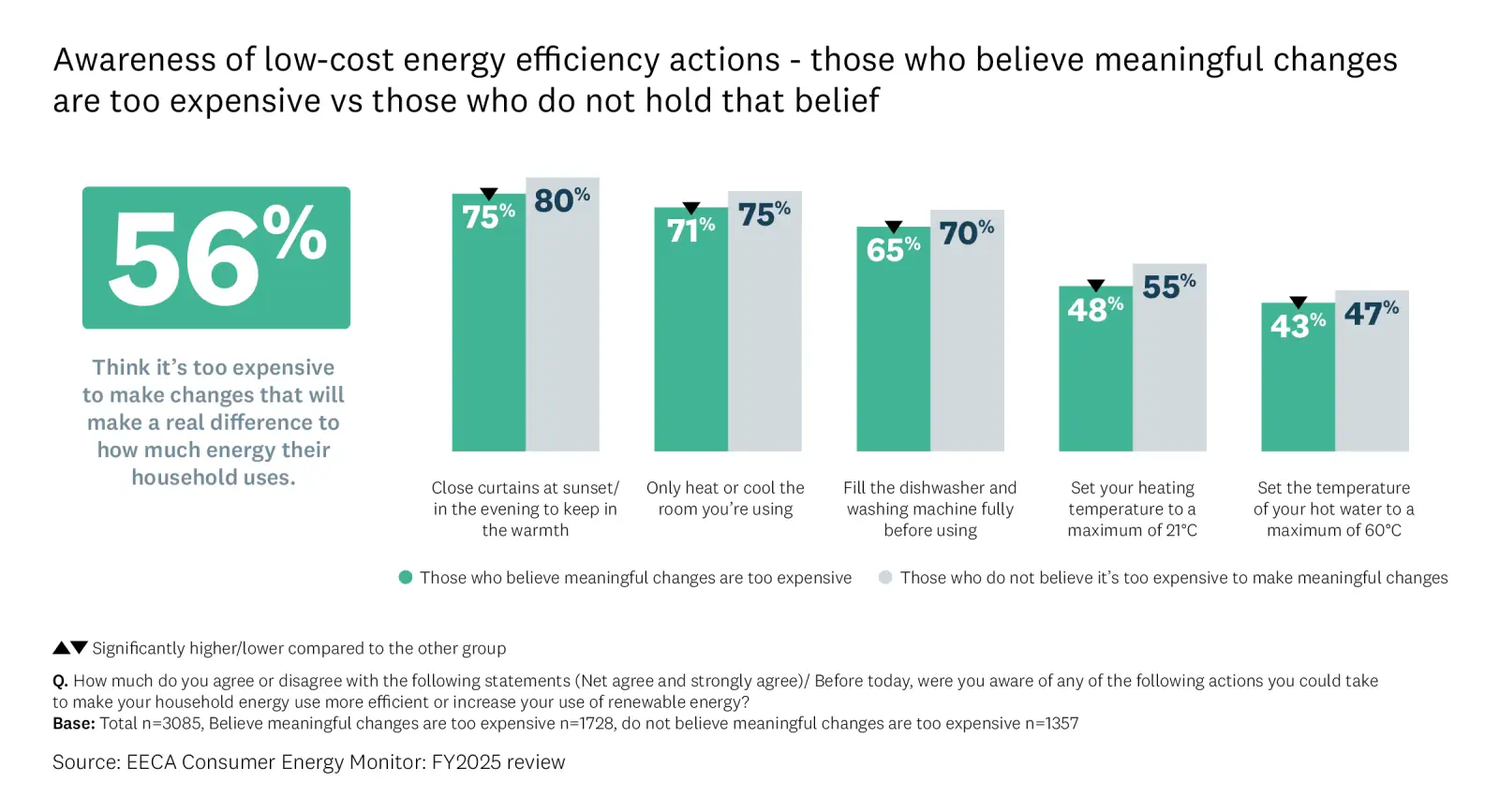This report looks at different types of households and their awareness and commitment to energy-efficient, money-saving actions they can take in their homes. It also investigates households’ actions around off-peak power plans including their uptake and use.
About the research
This study is designed to understand New Zealanders’ relationship with energy.
The monitor captures data on how New Zealanders are using energy in their homes. Alongside broader behavioural and attitudinal trends, this study allows EECA to assess how to further empower households to use energy more efficiently.
Over the past year a total of 3,085 survey responses were analysed, across 4 quarterly dips.
Key findings
Affordability and security of energy supply are the leading concerns for New Zealand households.
Over three quarters of New Zealanders (76%) believe it’s important we invest more into renewable electricity generation, whereas just over half (54%) see having a sufficient supply of fossil fuels as important.
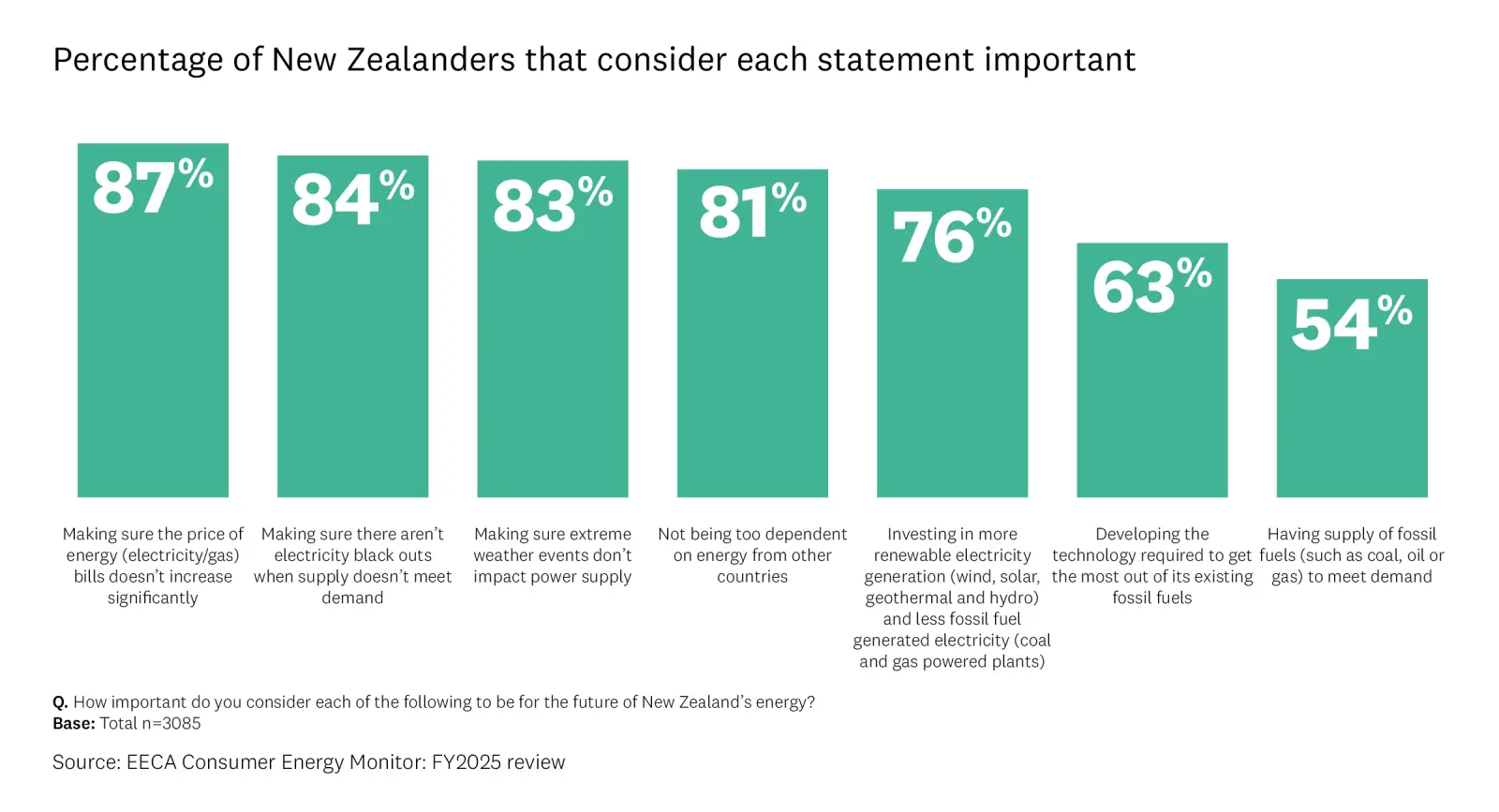
Uptake of off-peak power pricing plans is low, with a third of consumers taking advantage.
However, a large majority (87%) of those who are on a plan change their behaviour, which shows that they are making the most of these plans. In particular, we see a shift in the use of washing machines, dishwashers and clothes dryers at off-peak times to reduce energy costs.
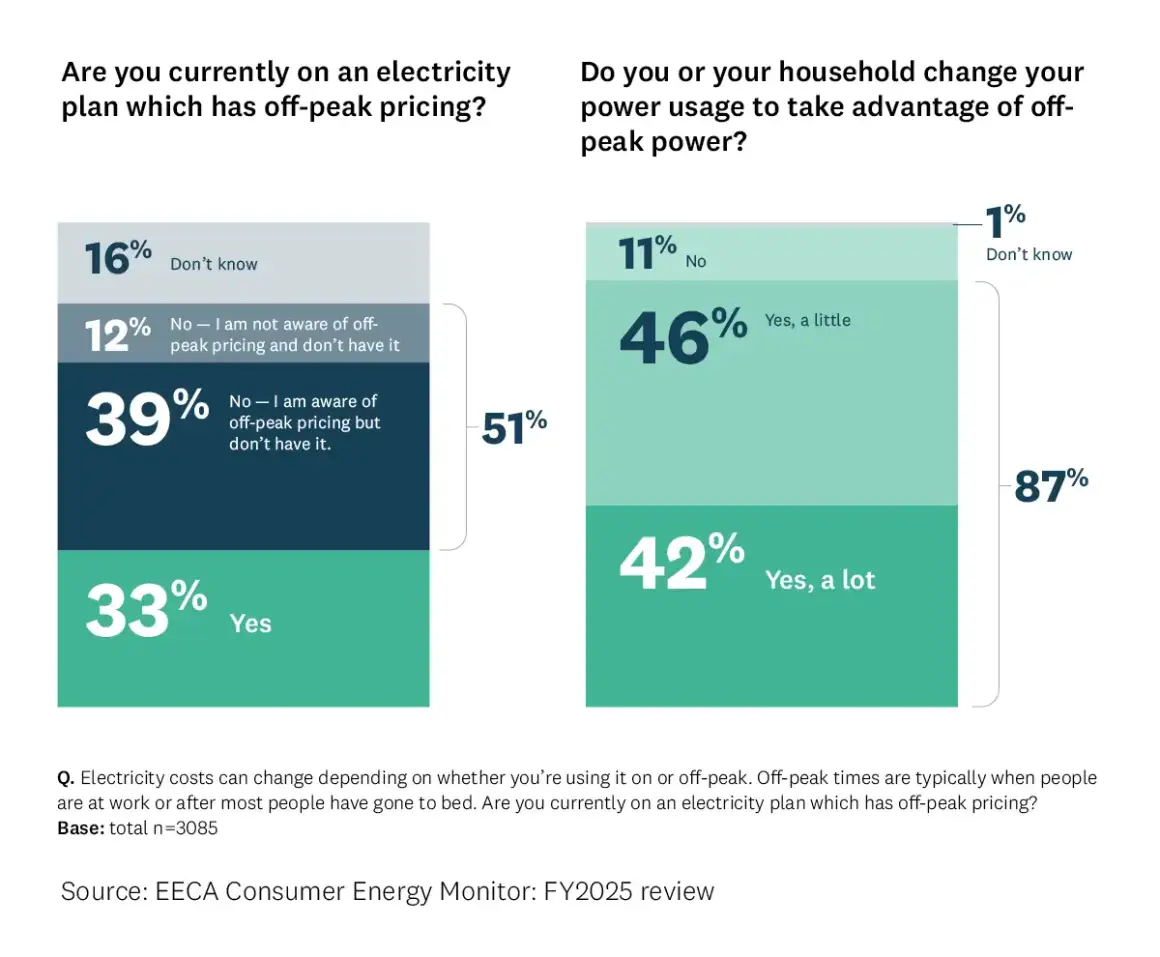
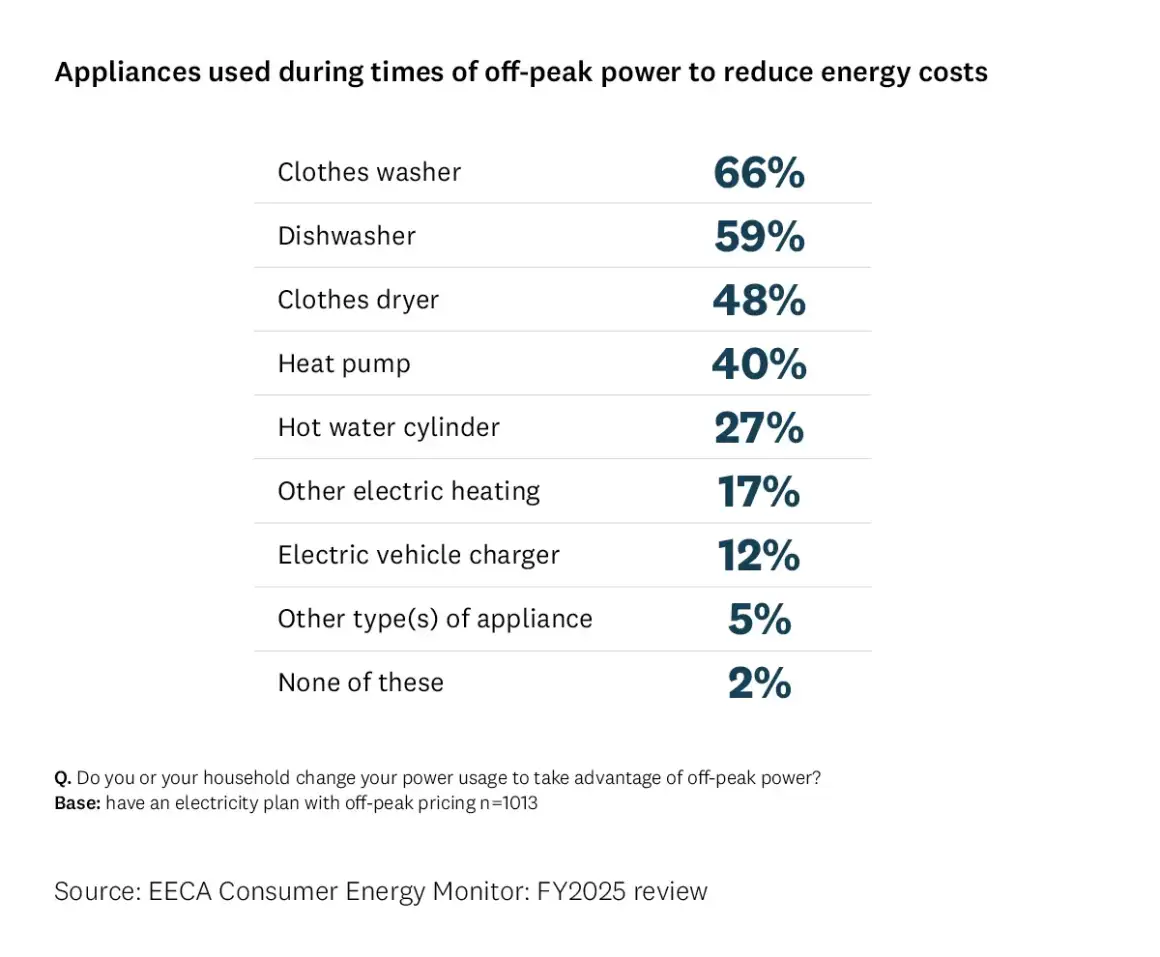
Half of electricity and gas users haven’t shopped around or engaged a new supplier in the last 12 months.
Just 14% of New Zealanders have changed their electricity supplier in the last year, despite over 2 in 5 having shopped around in the previous 12 months. Those who shopped around typically did so online.
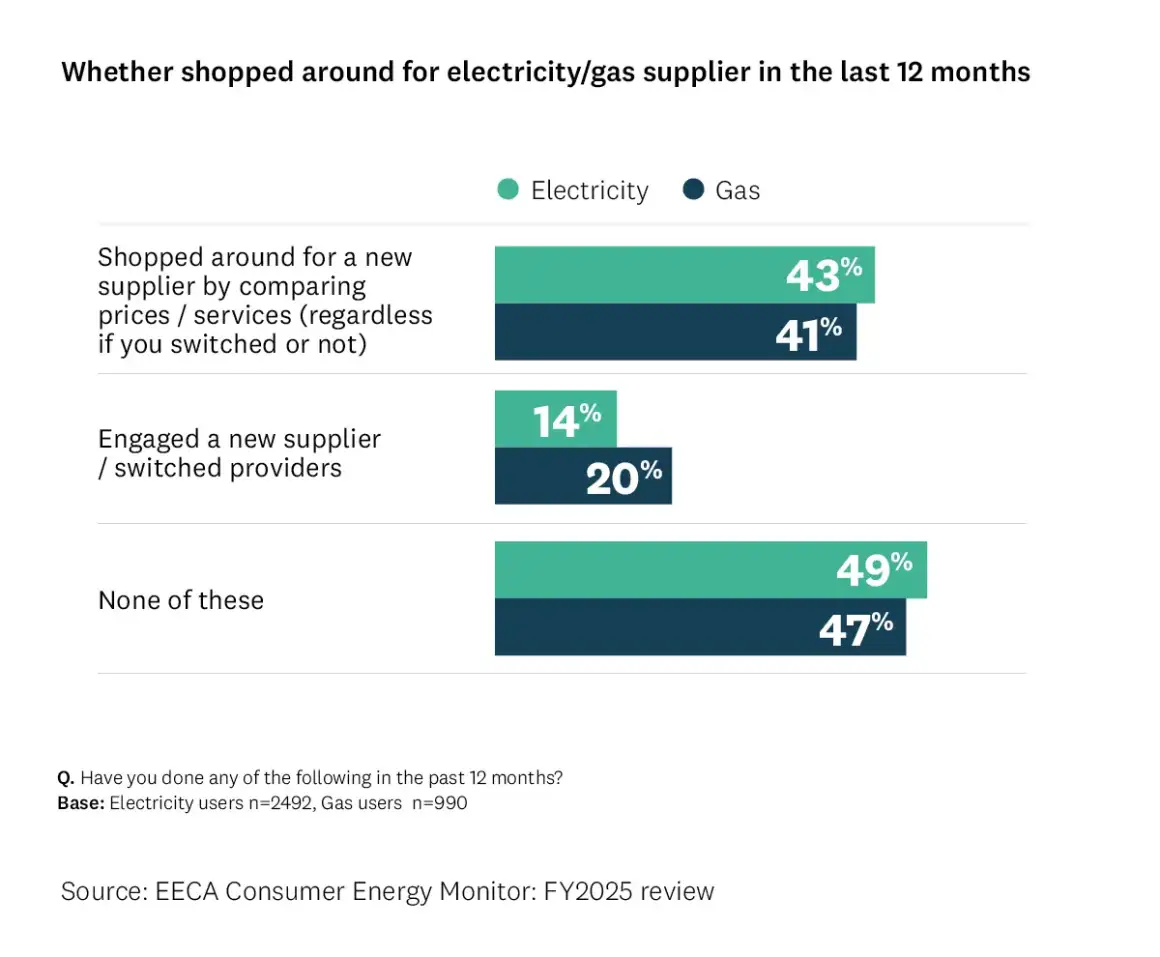
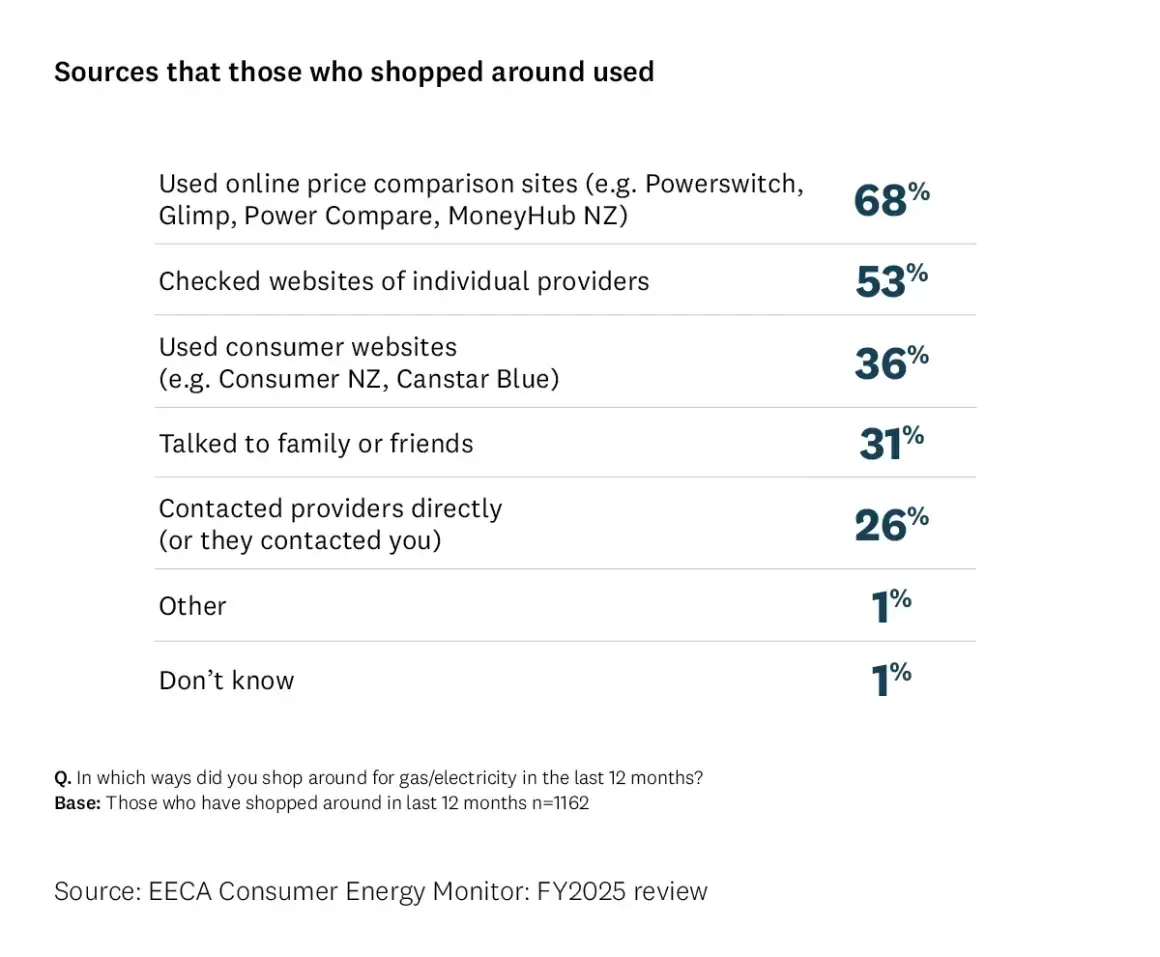
Gas users were slightly more likely to switch suppliers, with 1 in 5 doing so in the past year. We saw a steep increase in gas supplier switching over the year, increasing from 14% in the first quarter (Q1 FY25) to 27% in the most recent quarter (Q4 FY25), equating to an over 90% increase in this behaviour.
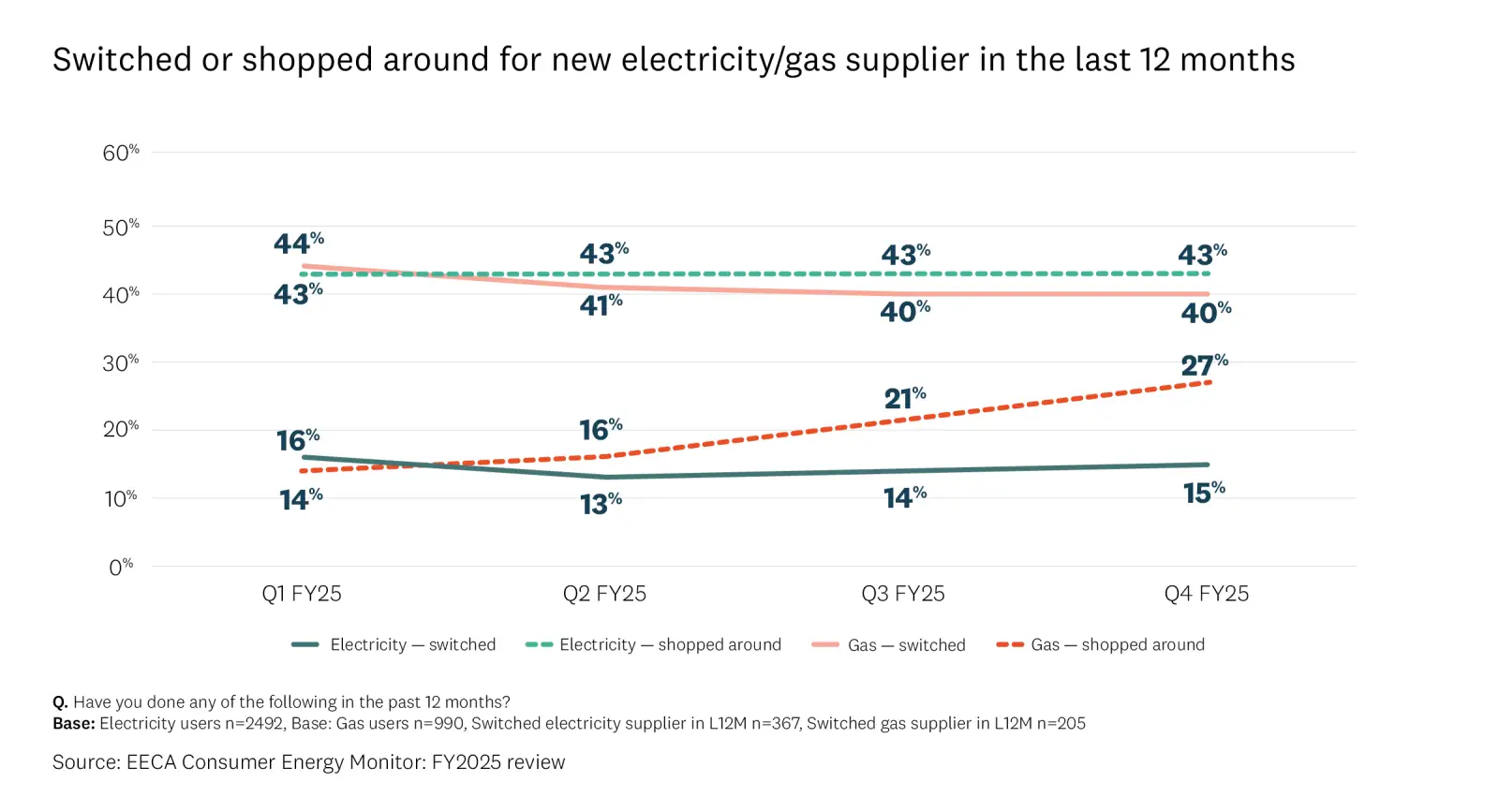
Energy efficiency is increasingly on the minds of New Zealanders. Throughout the year we have seen a steady rise in interest in learning more about energy efficiency in the home.
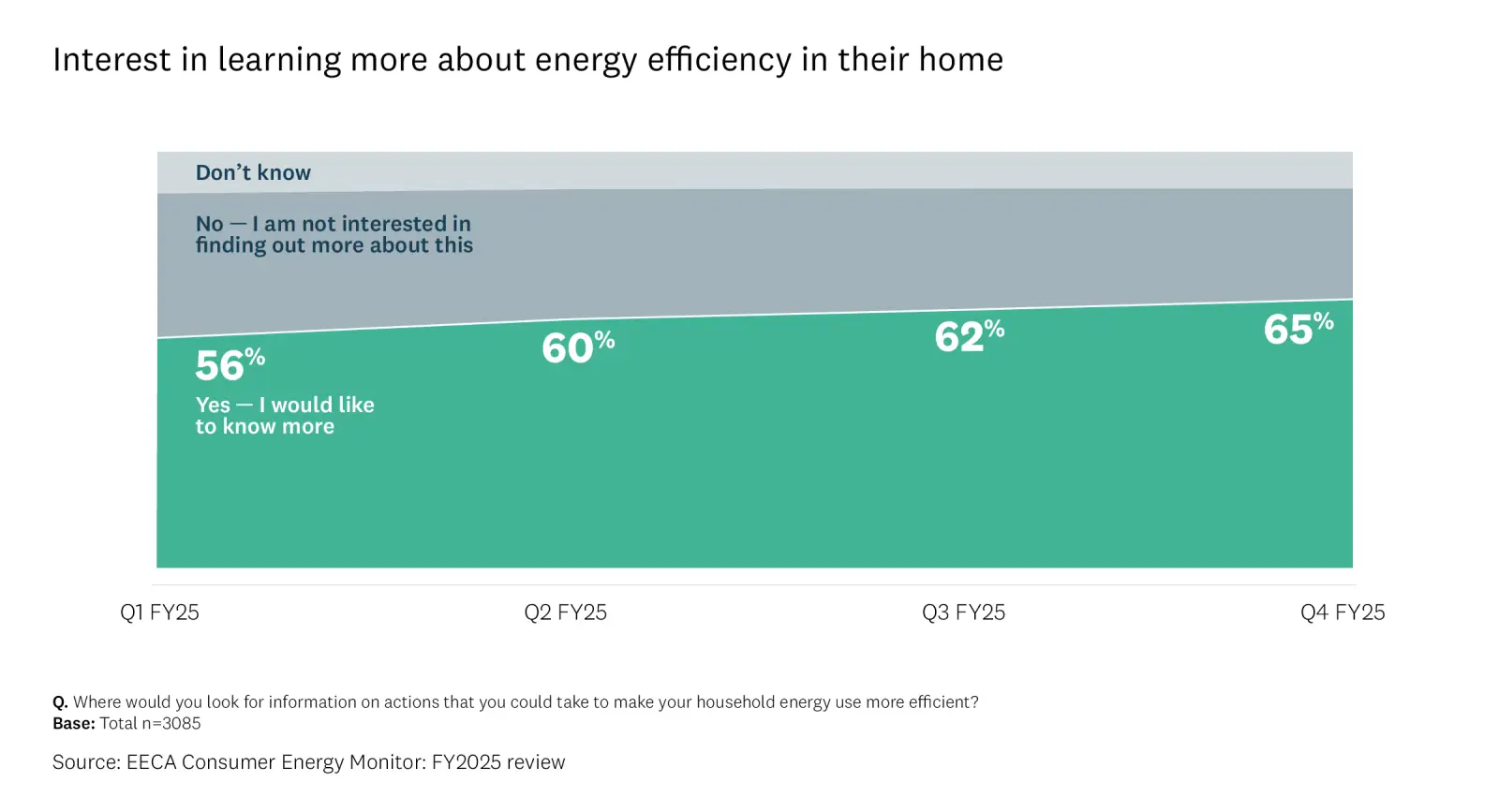
Those who believe meaningful changes to reduce energy costs are too expensive are less likely to be aware of low-cost energy efficiency actions.
This is particularly true for actions which relate to heating the home, such as setting heat pumps to a maximum of 21°C, closing curtains to keep in the warmth and only heating rooms that are in use.
